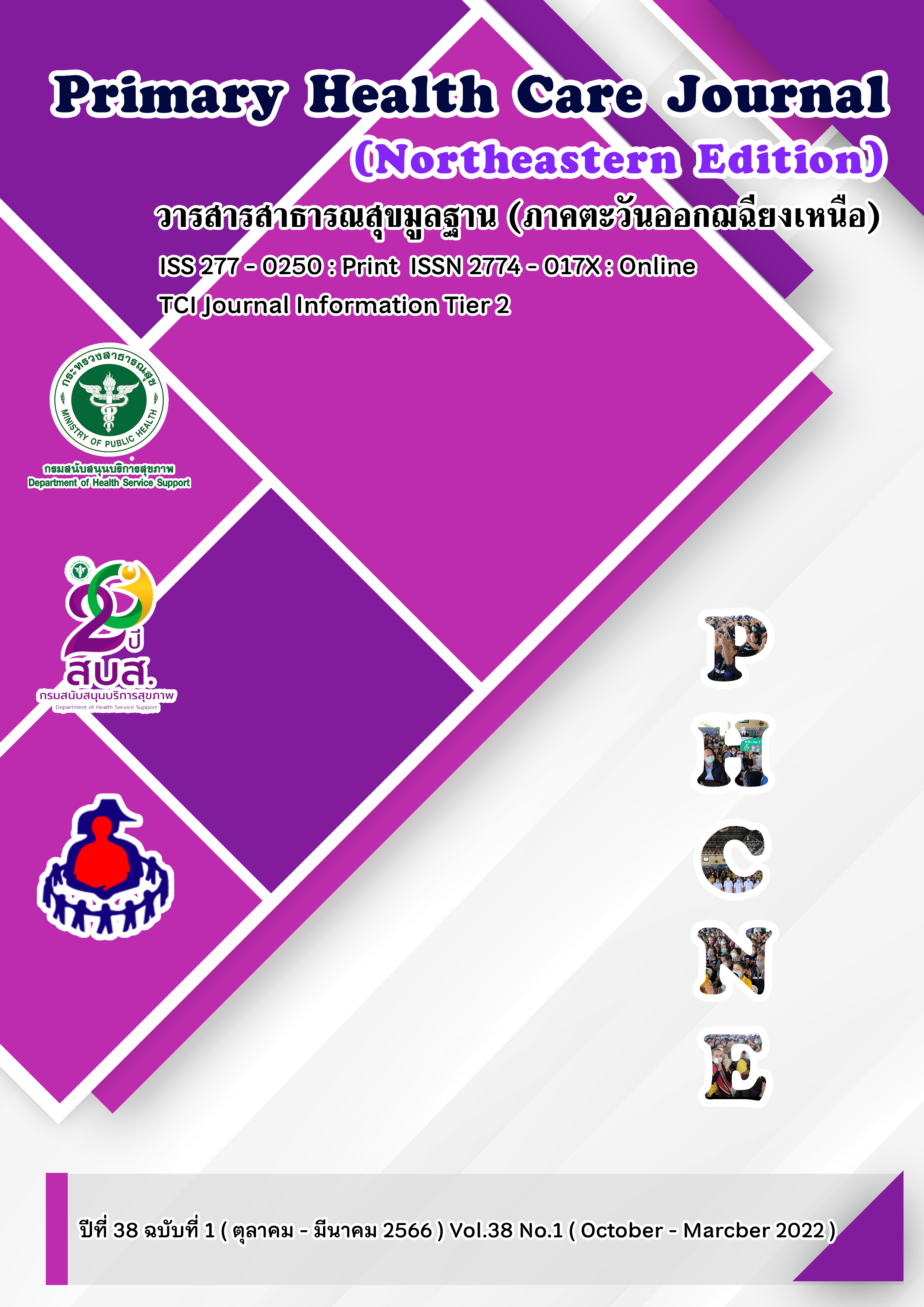THE DEVELOPMENT ACTIVITY FOR KNOWLEDGE OF THE UTILITIES OF TRADITIONAL HERBAL WISDOM FOR HEALTH CARE AMONG VILLAGE HEALTH VOLUNTEER
Keywords:
Knowledge enhancing activities, Village health volunteer, Traditional herbal wisdomAbstract
This mixed methods aimed to develop, efficiency assessment, and achievement of knowledge-enhancing activities of the utilities of traditional herbal wisdom in village health volunteers. 19 stakeholders and 35 village health volunteers who lived in the area of the Suthep Municipality, Muangchiangmai District, Chiangmai Province, participated. Data collected by the learning knowledge activities package on the utilities of traditional herbal wisdom for health care, the learning achievement form, and the satisfaction assessment form. The data were analyzed by inductive analysis. The E1/E2 efficiency was determined using the set criteria of 80/80, comparing the achievements of the knowledge enhancing activities with the Paired t-test, and satisfaction evaluation with descriptive statistics. The results indicated that knowledge enhancing activities consisted of 1) survey techniques, 2) development of local herbal products, and 3) the synthesis of guidelines for promoting the use of local herbs for health care. The efficiency value was specified at 80/80 percent (80.66/86.94). As for the comparison of the achievements of knowledge enhancing activities, it showed the average post–learning achievement score was higher than the average pre–learning achievement statistically significant at .05 level. In this regard, the stakeholders suggested the activities by adding activities to survey the time of the activities and should have a variety of instructional media.
Downloads
Published
How to Cite
Issue
Section
License
Copyright (c) 2023 ศูนย์พัฒนาการสาธารณสุขมูลฐาน ภาคตะวันออกเฉียงเหนือ จังหวัดขอนแก่น กรมสนับสนุนบริการสุขภาพ กระทรวงสาธารณสุข

This work is licensed under a Creative Commons Attribution-NonCommercial-NoDerivatives 4.0 International License.




